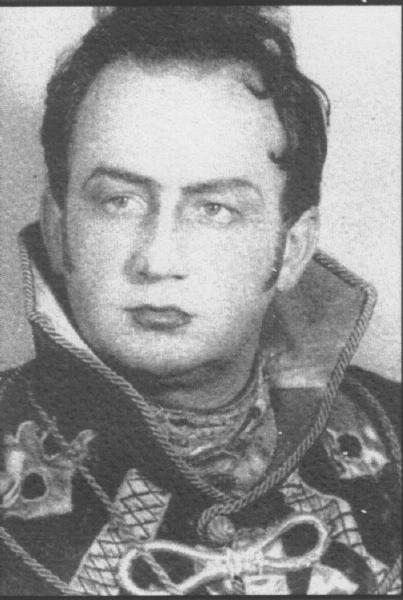Born Laza (with no final "r") Jovanović-Porcia into an aristocratic family, he was an erudite man with various
artistic talents; he spoke several languages and translated opera librettos into Serbo-Croatian. By profession, he was a
mechanical engineer and worked for the Yugoslavian Aviation Command. That he took voice lessons in Belgrade was just for
private fun.
When World War II reached Yugoslavia in 1941, he did the unexpected, left the Air Force – and entered the choir of the
Belgrade opera theater. One year later, he was promoted to soloist; his eight seasons in Belgrade (until 1950) made him a
legend in Serbia.
In late 1950, when the communist government was already firmly established in Yugoslavia, he made guest appearances in
Zürich – and never returned to Yugoslavia. In Italy, he had considerable success as a singer for a short while. But
before long, his solo career was over, and he became part of a music ensemble in Vienna. He died in his hotel room when the
ensemble toured Italy.
His quality as a singer was his intelligence, his education, and the resulting musicality and interpretative force; not his
vocal technique, however, which always remained incomplete (certainly the reason for the early diminishing of his success).
His best roles were Cavaradossi, Turiddu, Canio, Werther, Radamès, Otello, Pollione, Don José, German and Dmitrij.
His voice is only preserved by a tape recorded privately in Vienna as a souvenir for his family, shortly before his death.
Reference 1, reference 2, reference
3
